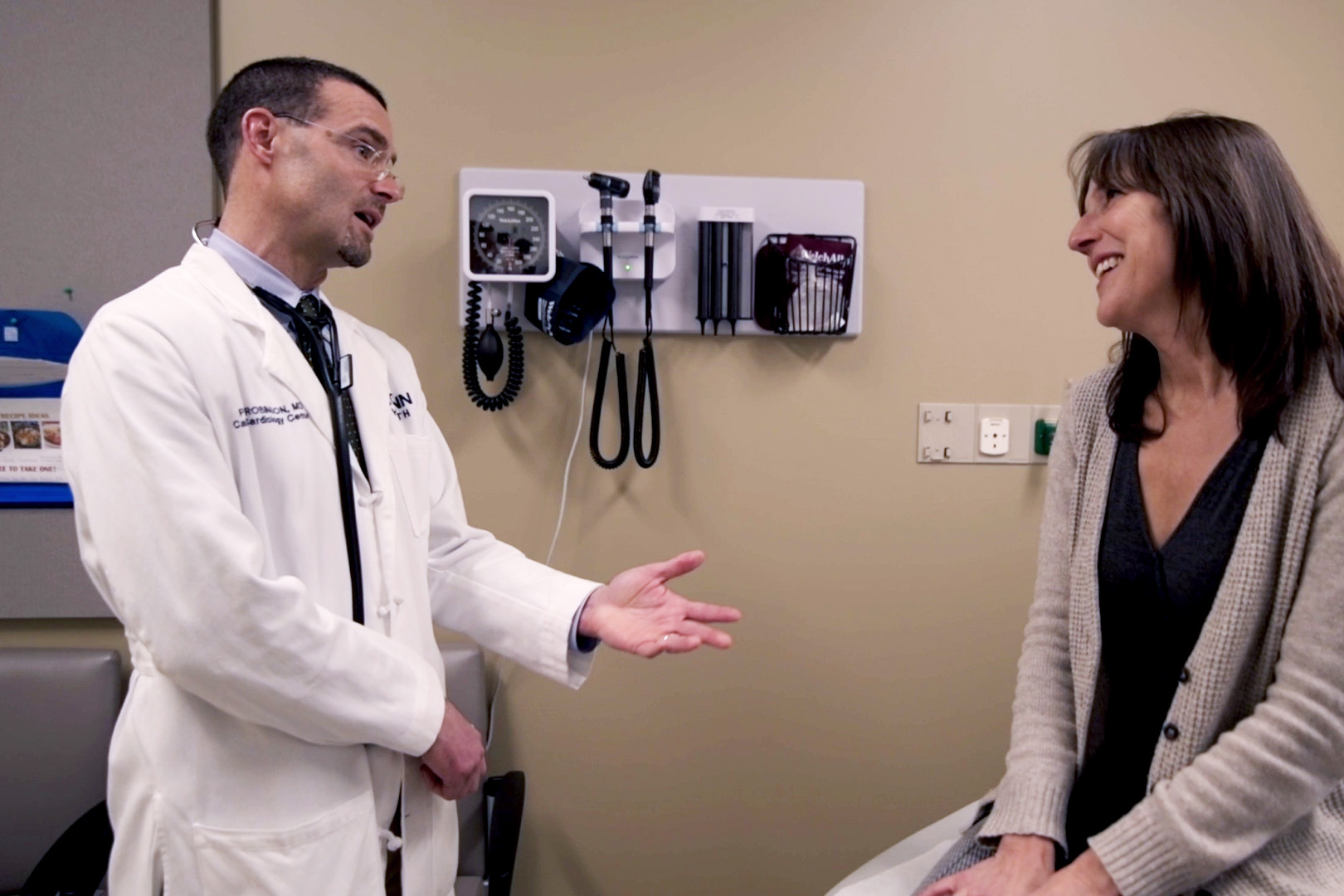The majority of cardiovascular disease is preventable. That’s why it’s vital for each of us to take steps to modify our risk factors to avoid experiencing a heart attack or stroke in our lifetime.
“Prevention of cardiovascular disease is really key,” says Dr. Peter Robinson of the Pat and Jim Calhoun Cardiology Center at UConn Health, an assistant professor of medicine and an interventional cardiologist in the Cardiac Catheterization Laboratory at UConn Health, where he is on the frontlines treating heart attack patients.
“But finding the time to eat healthy and exercise often seems like a luxury,” admits Robinson. “As we lead busier and busier lives, unhealthy food is easier to grab while on the go, healthy food options are more expensive and time-consuming to prepare, and our daily stress levels are on the rise leading to less than optimal lifestyle choices.”
But while it’s difficult, with less than 1% of men and 5% of women over 45 years of age meeting the definition of ideal cardiovascular health, Robinson stresses that it’s not impossible to obtain ideal cardiovascular health for life.
“It’s important to keep a healthy lifestyle and modify our risk factors as early in our lives as possible. We should all strive daily to do better when it comes to protecting our heart health from the ravages of heart disease,” says Robinson. “We do need to stay vigilant about our heart health but also need to remain realistic and keep in mind that we can only control what we can.”
According to Robinson research shows that nearly everyone already has the beginning stages of heart disease with initial fatty deposit streaks lining our cardiovascular system’s arteries as early as in our adolescent years.
“The start of cardiovascular disease is in essentially all of us to some degree, so it’s up to each of us to make good lifestyle choices and take proactive steps to not have it progress further and become manifest,” says Robinson. “We must keep performing maintenance on our heart health from young adulthood and stay proactive as we age.”
Robinson stresses that there are 7 simple steps that he and the American Heart Association highly recommends for each of us to obtain ideal cardiovascular health. These ideal lifestyle and health factors to focus on are:
- Do not smoke.
- Keep a healthy body mass index (BMI should be less than 25).
- Be physically active (Moderate exercise should occur 3-5 days a week even if just 30-40 minutes of brisk walking).
- Maintain an optimal diet.
- Control your total cholesterol (Less than 200 is ideal).
- Control your blood glucose (To prevent or manage diabetes a fasting glucose level of less than 100 is ideal).
- Control your blood pressure (Less than 120/80).
Additionally, Robinson notes that while it’s a challenge to avoid any exposure to stress in our daily lives, it’s important to keep it as low as possible. Elevated stress hormones and chronic emotional stress have been shown to play a role in increasing one’s risk of developing cardiovascular disease.
Robinson has a take-home message for everyone. If you think you are having a heart attack the number one step you can take is – don’t wait it out.
“No one is born knowing what it feels like to have a heart attack,” says Robinson. “Don’t write off your possible heart attack symptoms and seek medical attention right away.”
Heart attack warning signs may include:
- Sudden chest discomfort
- Chest heaviness or tightness.
- Shortness of breath or constricted breathing.
- Sweatiness or lightheadedness.
- Nausea.
- Indigestion, heartburn, or an esophageal burning sensation.
Robinson is concerned that not everyone in the U.S. isn’t paying close enough attention to the warning signs of heart attack or heeding the advice to lower their risk of heart disease by modifying their cardiovascular disease risk factors.
“We are seeing across the nation an uptick in acute coronary artery disease, heart attack, and heart disease symptoms in younger and younger patients,” says Robinson. “This increasing trend is mirroring the rising rates of obesity and type II diabetes.” He notes, diabetes and heart attack risk coincide with doctors working to manage diabetes closely to prevent a patient’s first heart attack.



